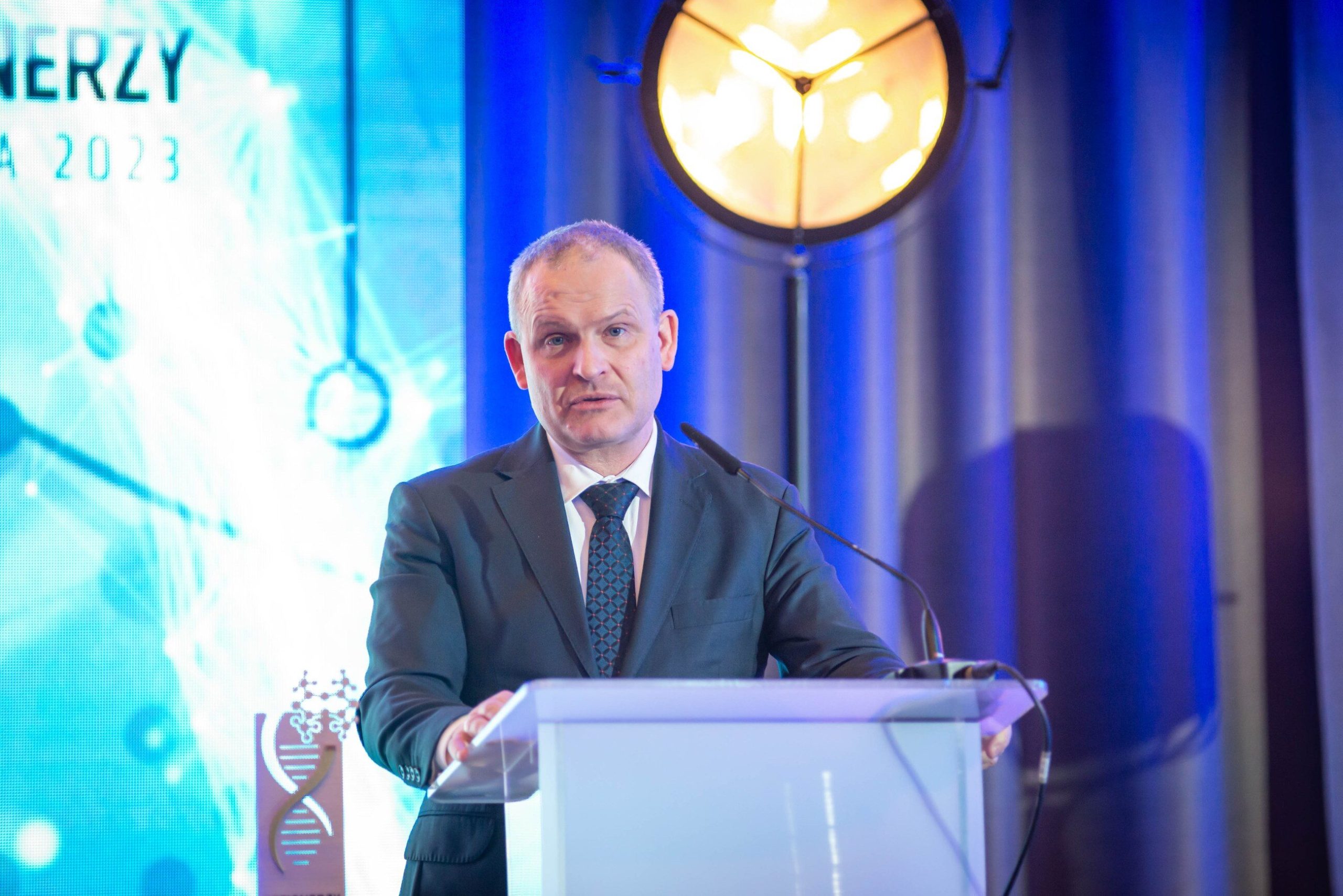“Minister of Medicines” with the Wprost award. “What I do affects the lives of patients”

The most appreciated minister in recent years: for the fact that today we have nothing to be ashamed of when it comes to the possibility of using modern medicines, and doctors of all specialties emphasize that for the first time they can treat in accordance with European guidelines. He says about himself that he sees the work of a deputy minister as a service. – I talk to doctors and patients. I try hard for them, because I know that what I do has a direct impact on their lives, says Deputy Minister Miłkowski.
When receiving the Wprost Health Visionary 2023 award – one of many that you received from patients, clinicians and various organizations – you said that it is not always possible to reimburse a new medicine. And that every such negative decision is very difficult.
Deputy Minister Maciej Miłkowski: Making negative decisions is incredibly difficult. It is easier when you know that it is a drug that has, for example, many side effects or is of poor quality. It is much more difficult when the drug is very important to patients, but we are unable to agree on price terms with the company.
However, we must always look at the references of a given drug to those used in other diseases. We cannot afford to pay unreasonably for a drug for some disease. It is very important to negotiate and significantly reduce the price, because then there will be more money left for medicines for other patients. So far, this has been successful in many cases.
Have there been situations when you knew that, clinically, a drug should be included in the reimbursement, but it was not possible due to its high price?
There are such situations. We have a statutory opportunity to spend more on a drug, exceeding what is specified in the Reimbursement Act. I often have a negative opinion of the Transparency Council of the Agency for Health Technology Assessment and Tarification (AOTMiT), the President of AOTMiT, and the economic commission, and yet we try to reach a price agreement with the company and we succeed. There are often opinions that therapy is too expensive, but we manage to reach an agreement – thanks to risk-sharing instruments or negotiations. However, this does not always happen – and these are the most difficult situations.
Many drugs, despite their costs and problems, are on the lists of reimbursed drugs.
We are always well prepared for talks. The department prepares reports, I have full access to each of them, as well as all analyzes and expert statements. I read all this and often propose my solution. I often make decisions on Saturday and Sunday, when I can think about everything calmly.
It happens that companies see that the situation is difficult and propose solutions that are so unusual, so good, that… you simply have to use them. Many things are achieved, often through tough negotiations with companies, but – and this is important – with great respect for the other side. Companies see this and also take negotiations very seriously.
What decision were you most satisfied with?
From each. We prepare individually for each decision. I remember medications for children with epilepsy, medications for angioedema, and other rare diseases – there were many decisions. I know when a company can lower its price and I try to take advantage of it.
You said that the minister’s job is to serve patients. Is this how you perceive your role?
I have always viewed my work in terms of patients. Both earlier, when I worked at the Mazowiecka Kasa Chorych, and later, when I worked in hospitals. I always see this direct correlation. The higher a person is, the more influence he has on the patient’s life. I often talk to patients, doctors and associations. I feel a bond with my patients and I try hard for them.
You are appreciated by patients, clinicians and representatives of pharmaceutical companies. It’s rare.
Without this entire group, it is impossible to make a good decision. Recently, I received an award from hematologists (honorary membership of the Polish Society of Hematologists and Transfusionologists – editor’s note). It is very difficult to provide a substantive insight into treatment regimens in hemato-oncology and individual lines of treatment. The deeper I get into it, the more I see how difficult it is, and even doctors often have trouble offering patients the best therapy.
If you had the opportunity to work with other politicians in the new government, would you agree to continue serving as “Deputy Minister of Medicines”?
I always tried to work substantively. We’ll see how everything turns out.
I by no means want to impose anything; Obviously, it is the minister who decides. I’m not an easy person either, but I think I can communicate.
I think that it would be advisable, at least for a certain period, because it is important to provide knowledge, directions, and draw attention to what – in my opinion – is important.
What will happen in six months or a year: I don’t know. For now, we do what we can do.
Much can still be done?
The thing about health care is that if it were seriously reformed, there would be work for several years. There must be a guiding strategy, but the world is changing and medicine is also changing. Today’s guidelines may be unfounded or even harmful in a year’s time. There are many changes in drug and non-drug technologies. There is still a lot to do.
You can read the entire conversation:
Maciej Miłkowski, deputy minister of health. He was, among others, financial director of the Masovian Regional Health Fund, deputy director for economic affairs of the Institute of Mother and Child, deputy director for economic affairs of the Institute of Cardiology in Warsaw, deputy president of the National Health Fund for finance. Since 2018, he has been Undersecretary of State at the Ministry of Health






